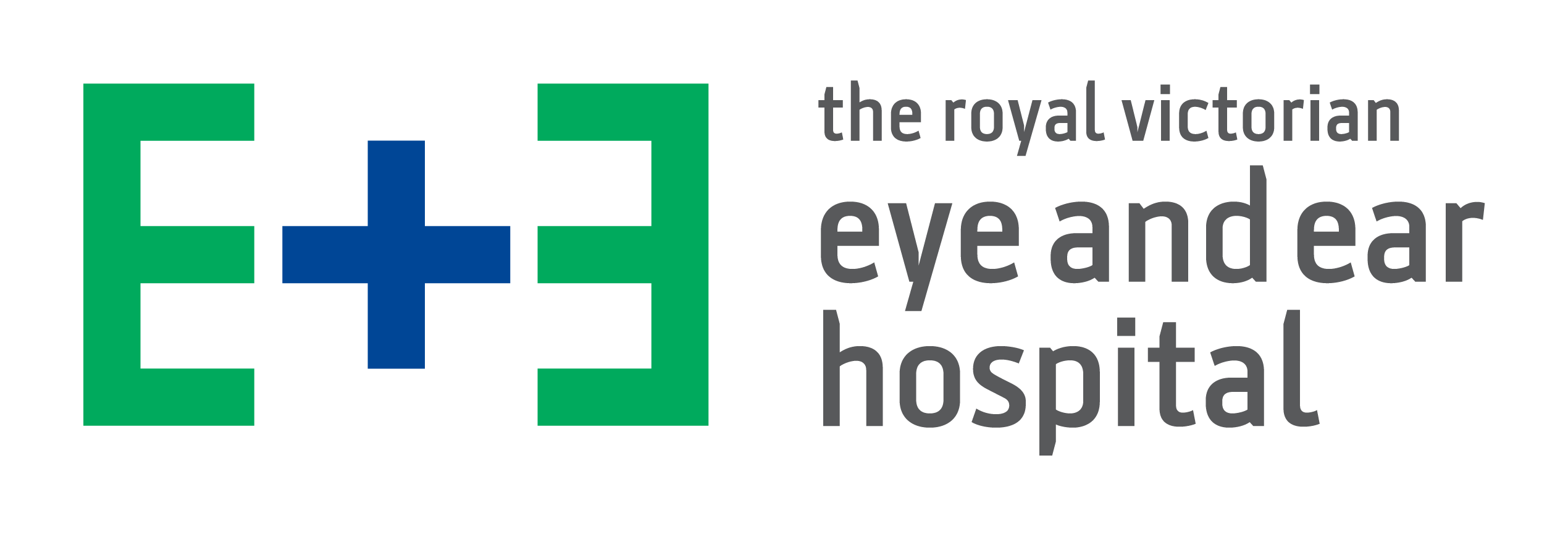International Medical Graduates
Junior Medical Staff require eligibility for registration with the Medical Board of Australia which advises two ways to become registered:
- Competent Authority Pathway
- Standard Pathway (AMC Examination)
Both pathways required English Language Skills Registration Standard.
Eligibility
When applying for any positions at the Eye and Ear please carefully read the Selection Criteria for each Position Description to ensure that you meet the eligibility criteria. If you are unsure, please contact us via email.
Medical Registration
To work as a Junior Medical Officer in Australia, International Medical Graduates must first be eligible for registration with the Medical Board of Australia. The Australian Medical Board provides all the information necessary to assess which pathway you must choose.
Each of the pathways require that you have sufficient English language Skills. For information on minimum English language test results and exemptions, please refer to the English Language Skills Registration Standard.
English language requirements
All fellowship applicants should note that Australian medical registration requires strong English language skills. Overseas-trained doctors, including those educated in English-speaking countries, must include in their fellowship application:
a) a sufficient English language test result (IELTS Academic, OET, PTE Academic, TOEFL iBT, PLAB or NZREX) prior to the commencement of the fellowship;
OR
b) evidence that you have completed your secondary education and/or undergraduate medical degree in English in Australia, Canada, New Zealand, Ireland, South Africa, UK or USA.
For information on minimum English language test results and exemptions, please refer to the Medical Board’s English Language Skills Registration Standard.
Working Visa
Appointments are subject to your eligibility to work in Australia. If you are the successful candidate, the Eye and Ear will sponsor you and help arrange the appropriate visa. Information on visas.
Police and Medical checks
You must pass the required Police and Medical checks and obtain private health insurance cover in Australia as per the Department of Immigration and Citizenship regulations.
Police Clearance certificate
If you are successful in your application, you will be required to obtain a Police Clearance certificate from your residential country. The certificate must be dated within three months at the time of your arrival at the hospital. This check is in addition to any checks which may be required as part of your visa application process.
Medical Checks
As part of your visa application process, all visitors to Australia who will work in the health sector require specific health screening. Please refer to the Department of Immigration website for further information. Note the ‘special significance’ requirement which applies to all visitors to Australia intending to visit/work in a healthcare institution.
Upon arrival in Melbourne, you will be required to attend a local healthcare provider to ensure vaccinations for Hepatitis for example are current.
Living in Melbourne
“Melbourne is packed with attractions, from laid-back laneways and lush parks to grand libraries and museums, all wrapped up in a vibrant atmosphere.� Source: City of Melbourne website, 11 December 2012.
Further information on attractions/events can be found at the City of Melbourne or the Victorian Government website.
Many galleries and museums are based close to the hospital and the central business district. The Victorian Museum is located very close to the hospital, and is also the location of our Imax theatre. During the year there may be major international exhibitions on display at the Museum – refer to their website for current news. The Melbourne Zoo is also close by and can be easily accessed by public transport.
Victoria is known within Australia as the ‘sporting capital of the world’. At various times during the year, international sports are held (eg. January – Australian Tennis Open, March – Formula One Grand Prix, October – Australian Motor Cycle Grand Prix, November – The Melbourne Cup (horse race). In addition, seasonal sports such as Australian Rules Football, Soccer, Golf and Cricket are played. Most events are centrally based around Melbourne, hence access is easy via public transport. Find out more about living and working in Melbourne.
